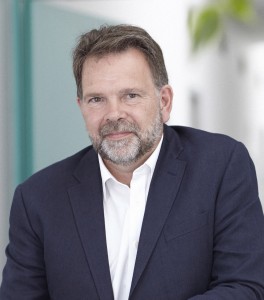
Only 4% of businesses ever reach the £1m turnover milestone. We make that number higher by providing ongoing support, important financial links and networking opportunities for our ambitious members. This year, Mindlab revealed the fantastic news that it has achieved that turnover, and is joining the £1 million club.
Mindlab is an independent research consultancy that focuses on measuring and analysing consumer shopping decisions, which are strongly influenced by factors outside conscious awareness.
Established in 2000, Mindlab has experienced several highs throughout its journey, including a collaboration with the London Contemporary Orchestra and Cadbury, as well as a BAFTA event.
Duncan Smith, Mindlab founder, told us: “Success didn't happen overnight; it took years. There's an element of luck with all success but there are three things that I can think of that helped us get where we are today.
“The first is vision. This may sound like business-speak but it's crucial. You need to have very clear goals of where you want to be; otherwise you're much less likely to get there and there's no reason why you can’t aim high.
“The second is to get the right people round you. It's really hard to let people that you like go but neither you or they will be happy in the long run if you bury your head in the sand.
“The third is culture - allow your team to express what is important to them. If you get culture right, then people know why they come to work.”
Mindlab Director of Innovation, Joe Hilling, also attributed part of the company’s success to their ability to stay agile. “Be prepared to take the knowledge you have and do something completely different with it,” he said. “We have a ton of legacy capabilities that we no longer use. That includes thousands of pounds worth of equipment, and hundreds of thousands of lines of code that has been shelved. It was hard (and ongoing) work to make such drastic pivots, but our target markets demanded that we focus our attentions elsewhere and completely reskill our staff. This has happened more than once, but the products we now offer are much more in line with the needs of our clients.
“Keep looking for opportunities in different spaces. If we had stayed within the bounds of our original mission statement, then we would have missed out on the opportunities that have provided our primary growth.”
Mindlab cite Sussex Innovation as being key to their success. “The first thing we did is use the accounts team to help us do things properly,” Duncan recalls. “The support services have been really good. We’ve used the Catalyst team to help with marketing, data, experiments, etc. The Centre also put me in front of investors even before we needed investment. We presented Mindlab to them and got feedback about what we needed to do to improve the business, so when we did need investment, we knew what to do.”
The Mindlab team has ties to the University of Sussex, with chairman and founder Dr David Lewis completing his PhD there. Nine members of the current team studied for their undergraduate or postgraduate degree on the campus. “Being on campus at the University has been fantastic, as we get lots of applications from bright and focussed graduates,” Duncan says.
Mindlab isn’t the only Sussex Innovation member to join to the prestigious £1m club.
Other members that have reached the milestone include:
- International digital marketing agency Oban International
- Flood risk analysis platform and consultancy Ambiental
- Video-based professional development platform Iris Connect
- Information security certification specialists Alliantist
- Mass participation sports event registration platform Race Nation
What is the secret to reaching the magic million? We spoke to some of the founders behind the businesses to find out more.
Greig Holbrook is the founder of Oban International, a marketing agency that focuses on ‘culturalisation’ over translation, tailoring websites in different locations to the local culture and ways of seeking information.
“When we launched Oban it was pioneering, so there’s a lot of market making that had to be done, and that we’re still doing today,” said Greig. “Over the years we worked on talks and events to make people understand what our business is about, which really helped to boost our brand.
One of the most important pieces of advice I would give someone looking to achieve high growth is to write a proper, detailed business plan. We have one now, but it took years to finalise it, structure it, and just to get something down on paper. It’s so important because when things are going wrong, you can look back on the plan and know where you need to make adjustments”. Greig also cites Sussex Innovation Centre as being instrumental in Oban’s success. “SINC brought a structure around the business… Some of the ideas they gave us, we still use in the business today,” he recalls. “My lack of experience caused problems, but that’s where SINC really helped, as they filled in some of the gaps”.
Justin Butler is the founder of Ambiental, a flood risk management business who have reached a £1m turnover with their ground-breaking technology. Achieving this turnover didn’t come easy, as Justin explains. “Running and growing a business is often less to do with the product or the science that got you interested in the first place. It is about processes, people and management – things that aren’t taught in school. Knowing how to invest money wisely when you haven’t done it before is actually very difficult.
If you come from a technical background, the tendency is to make interesting and innovative products. It’s important to remember that these ideas should always be solving a problem or helping people.” Some of the Ambiental team have further ties to the University of Sussex, with CTO David Martin graduating with a Geography degree in 2005.
It’s fantastic to see so many of our members achieving this high level of growth. Part of the criteria for working with the Innovation Centre is that businesses must be ambitious, and seeing so many of the companies hit this £1m turnover milestone really shows this determination. These companies are also examples of how it can sometimes take years to become an overnight success. It’s all about forming the idea into a product and creating a scalable business model.
While we are busy celebrating the success of some of the businesses we work with, we never stop supporting others who have the same ambition to grow. If you’re interested in joining Sussex Innovation Centre, find out more here.






